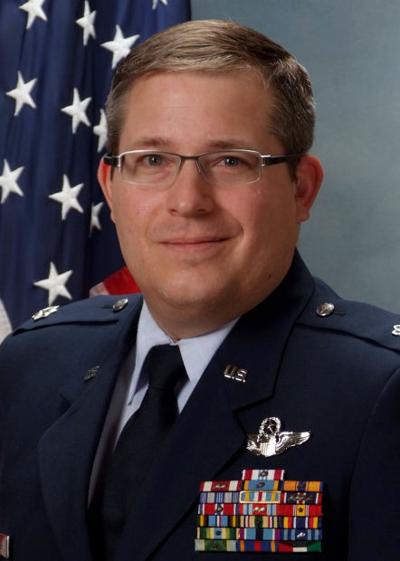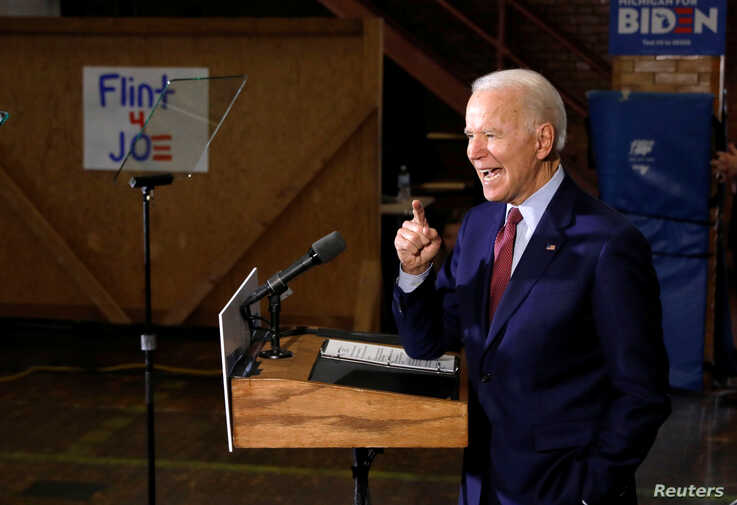Six years later, Bryan Miller wants a shot at Mike Enzi’s Senate seat
CHEYENNE — Sheridan’s Bryan Miller says he’s learned a lot in the six years since he mounted an unsuccessful bid to challenge Mike Enzi for his U.S. Senate seat.
When he came in second in that year’s wild, nine-way primary election, Miller still finished well behind the leader in that race, failing to crack double digits in a race which Enzi took with more than 80 percent of the vote. Planning another attempt at the seat this year – this time, with Enzi retiring – the former Air Force officer and state GOP official is older, wiser and more experienced than he was when he took his first leap into elected politics.
Rather than taking on an entrenched incumbent this time around, Miller is now looking to play the spoiler in a primary election that features former congresswoman Cynthia Lummis, who has received endorsements from both of Wyoming’s senators and a number of established members of Washington’s Republican elite.
“When I ran, I learned that Wyoming politics isn’t that much different than the rest of the nation,” Miller said. “For a lot of years when I was running around in the military, I would always say ‘Wyoming is completely different!’ but from the press to where your politics are, it wasn’t quite what I thought.”
Since the last time he ran, Miller has gotten more involved in local and state politics, serving as Sheridan County GOP chairman and as a member of the Wyoming GOP’s State Central Committee. He’s honed his platform, a conservative policy slate that, while pro-Trump, plays maverick when the situation calls for it. Most importantly, he’s getting involved early, doing away with the cheaper, 90-day style of campaign he tried in 2014.
“That would be a great way to run the political world,” he said. “Back then, I was looking to test that system out. But it didn’t work as well as I’ve hoped – I hadn’t taken into account the early voting in Wyoming. By the time I was done with my last campaign, I had hundreds of people showing up at events around the state telling me, ‘if I had only known you were running, I wouldn’t have voted early.’ That was a big deal to me.”
Fighting for recognition both against an established candidate and a growing field of Republican challengers (four total Republican candidates have filed with the Federal Elections Commission as of this writing) Miller believes he has a platform that not only hits all the notes for the state’s mainstream Republican politics, but distinctly stands out from those espoused from his competition. Having spent time in the Pentagon within the North American Aerospace Defense Command in the years after 9/11, Miller has since submerged himself into state and local politics.
That time, he said, has given him a unique perspective that he feels sets him apart from someone like Lummis, who’s spent a majority of her life in elected office.
“I would like to see things change out there in D.C.,” said Miller. “The type of politics we see there has overcome the commonness that needs to be there in the government in general. We need to work on that.”
Miller thinks he can bring that. Last time around, he managed to earn 9 percent of the vote with just $19,000 in total spending, a number he believes can be improved with even more time to run. From a policy point of view, he thinks his positions set him apart as well. While holding the policy stances needed to win a statewide campaign in Wyoming – a professed love for limited government, fiscal discipline, etc. – Miller plans to draw a line between where state’s rights and federal law define themselves. He also wants to stay far from litigating social issues.
“I would much rather see a higher state tax, and a lower federal tax, depending on what state you’re in and what your state needs, than a huge federal tax with people sending money to D.C. that barely makes it back. Instead of leaving 80 percent there and getting 20 percent back, let’s keep 80 percent here and send 20 percent over there. It makes no sense to me – we have all this money wasted in D.C. on people who don’t need to be there. They need to be spread across the country, in the states where they are.”
While aligned with the president on a number of key areas, Miller is willing to differentiate himself from the party’s standard bearer in certain ways – particularly on foreign policy. While Wyoming’s delegation in Washington has often been willing to yield to the president’s authority to take unilateral military action against nations like Iran, Miller believes the Senate has abdicated many of its vested powers to check executive overreach and, while every military option needs to be judged on their individual merits, said Congress should take a greater role in defining foreign policy.
“The House and the Senate have the ability to say yea or nay when it comes to war,” he said. “But since World War II, they have effectively given up that ability to really make that determination. They’ve really turned a lot of power and authority that the Congress had over to the president.”
Whether he can bring the state’s Republicans to rally around him, however, remains to be seen. Over the past year, Miller has been a key figure in a growing feud between a number of party moderates – particularly in Natrona and Laramie counties – and the state central committee, whom detractors describe as being increasingly run by “extremists.”
Whether this could complicate his ability to run an effective, statewide campaign, however, remain to be seen. Miller said that the conflict seen in Wyoming resembles a case of the state undergoing a period of political transition, a metamorphosis similar to those seen in other parts of the country. New organizations like Frontier Republicans – composed of a coalition of moderate Republicans – have formed independent of the state party, which Miller said has simply evolved to reflect contemporary conservative values in recent years.
“The state, just like the nation, has changed in the last four years,” said Miller. “People who have been quiet, and have not been a part – the silent majority – have not played a part in state politics for a long time. Four years ago, when President Trump got put into office, that started changing. Two years ago, it kept changing. And now the state central committee – and the more active people around the state – lean more conservative than progressive, as have been in recent past.
“They’re saying, ‘Oh, we’re being silenced,’” he added. “Well, no, you’re not being silenced, you’re being outvoted.”








